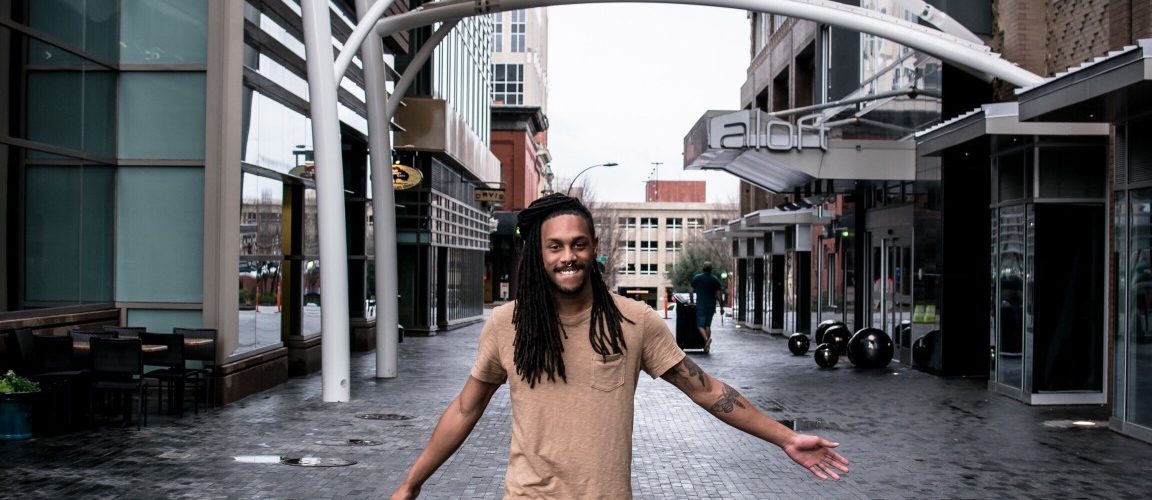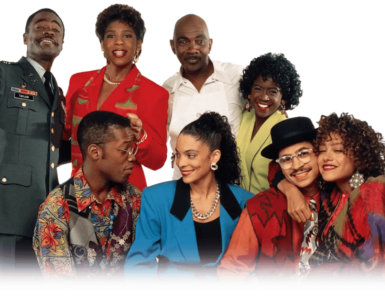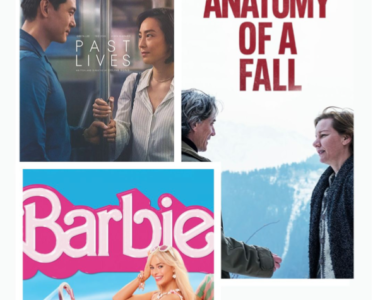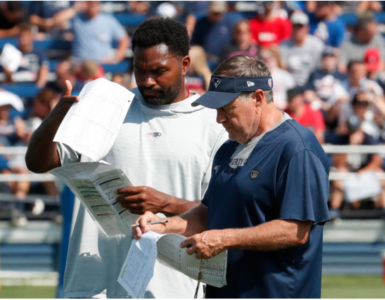Sacred today, as much as it was centuries ago, a mighty, lava-spewing volcano sits on the largest island of thousands that form a stringed archipelago in the Pacific. Tall and snow-capped, perfectly reflected in the waters below, Mount Fuji has lured travelers to its summit for thousands of years, maybe more. Hours before the sun peeks above the horizon, a young man stands on Japan’s highest crest, gasping for air, tired and victorious, as he takes in the sight.
“I climbed Mount Fuji to see the sunrise in Japan,” Ronnie Washington said. “It showed me I could push myself and have an adventurous life.” Washington traveled solo, even though he didn’t know the language or much about the country. “I learned self-sufficiency.”
A modern nomad, Washington has 25 countries under his belt and counting. His journeys zigzag at a whim: Japan today, Nicaragua and Italy some time before, back to Ghana soon. At 29, he has by happenstance become part of a movement that has continued to gain steam.
Washington’s 10-day adventure is just the stuff that is propelling the current black travel movementor traveling while black as some call it. Either way, it is an explosion of black bodies roaming across the globe to quench their collective wanderlust. And the number of black travelers has steadily risen since 2013, according to research by MMGY Global, a travel and hospitality marketing firm, whose slogan is “we inspire people to go places.”
African Americans are more intent on traveling and less prone to leave vacation days unused compared to other groups, MMGY Global reported in its 2015 Portrait of the American Traveler. “We’re going to see more African Americans traveling internationally,” Stephen Cohen, the firm’s vice president of insights, told Time that year.
“Over the last three years, the increase among African Americans has been pretty significant, going from an increase of about 3 [percentage] points, to 6 points, to 19 points this year,” Cohen added.
While international travel is predicted to decrease overall for Americans, millennial families – the largest demographic of black international travelers – is expected to increase in spending by 8 percent.
Another market research firm called Mandala Research created the African American Traveler Report in 2010, focusing on “demographics and trip planning statistics.” The 2017 report expanded the research “into behaviors and penchants” of black travelers to provide a better understanding on how to best market to the population.
Washington is just one of these black travelers; they are spurring an entire industry to take stock and try to figure out just how to accommodate the growing cohort of globetrotters. The zeal of these young black millennials is changing the world.
But the road to international travel for Washington was not always so accessible and cavalier in thought. “I didn’t go internationally till right after undergrad, and felt I was a little late from some of my peers,” he said. While at Morehouse College, he interned on Wall Street and witnessed intangible benefits of travel. His peers – mostly white students from Ivy League schools – could compare travel notes with supervisors and had a leg up.
“Connections that other interns could make with bosses because of points of conversation I didn’t have [were] frustrating, and I felt like I was behind,” Washington said. “They were more well-equipped.”
Even though he wanted to broaden his perspective and share in conversations that travel seemed to offer, he could not afford it and began to long for it.
Beyond financial resources, Washington had another point of trepidation about international travel. “I didn’t know how I would be received,” he said. As a black man in America, he was unsure how welcoming the rest of the world would be; especially, as he and his best friend prepared for a backpack trip after graduation through Western Europe.
But what happened on his trip took him by surprise. “I didn’t feel as out of place as I thought I would, and actually felt freer abroad than in the U.S.,” Washington said. By being referred to as an American and not black, he felt that people were not just seeing his race, something that seems to define him completely in the states. His citizenship and other qualities could be important, too.
“The world became so much bigger in scope in terms of the number of places I could go and things I could do,” he said. In his travels to other countries, he also found a new measure of commonality and self-awareness. “I learned that we all have a story to tell and my story is just as important as someone from Japan or Ghana, or anywhere else.”
Alison Bethel-McKenzie, who has lived in five countries abroad and visited nearly 70, said that international travel allows people to better “understand the importance of learning about diversity, culture and language.”
Traveling abroad has benefitted her personally and professionally. She served as the executive director of the International Press Institute in Vienna, a Knight International Journalism Fellow in Ghana, and editor for publications both domestically and abroad. In 2018, she became the first black woman executive director of the Society of Professional Journalists in its 108-year history.
“It is important to be a global citizen,” Bethel-McKenzie said. “I understand how the rest of the world views the U.S.; that’s a really big thing.”
Bethel-McKenzie said Americans can be very insular and self-absorbed. “In the states, I have a hard time getting people to come overseas. It’s an uphill battle,” she said in a phone interview from Brussels.
Black Americans may have an interest, but not a commitment to international travel, Bethel-McKenzie said, emphasizing that they need to learn that travel – both at home and abroad – is beneficial.
While black commitment to travel may still be an issue overall and has some legitimate historical roots (sundown towns, Jim Crow, poverty), research is showing that the tide is rapidly changing. “Seventeen percent of African-Americans take one or more international trips a year and spend $48 billion on travel in the United States alone,” according to a 2010 study by Mandala Research.
According to the U.S. Census Bureau, black household annual incomes and high school graduation rates began to increase at least since the 1960s. These gradual increases, along with the proliferation and use of social media, may have converged to create more avenues for blacks to enjoy travel.
These African cities should be on your 2019 travel bucket list: https://t.co/luuNJw2SNg pic.twitter.com/ABigrkV09x
— Travel Noire (@TravelNoire) January 9, 2019
Social media has proved to be an indispensable tool in encouraging travel by connecting people of similar interests together in a way that was difficult if not impossible before. For black millennials, open spaces on Instagram, Facebook and others have allowed for black travel to become visible, real and more obtainable.
Travel Noire, Nomadness and BlackGirlTravel are only a few of the many black travel groups that have recently popped up to service the Black Travel Movement, with clients searching on social media to find photos and stories as they decide their next destination.
“The world is more global with social media,” said Christina Allen, a 31-year-old Washington area resident. “You can just see what’s out there.”
Allen has been on two international trips with Travel Noire, to Italy and South Africa. “With Travel Noire, I got a lot more done with my time and I got to do things that I probably would have never known to look up or plan on my own,” she said. “They take black millennials to places they rarely go, and where they don’t see a lot of black travelers, especially young ones.”
In 2015, Allan got her first passport and has been ready to go ever since. After initial trips to Toronto and the Dominican Republic, she knew she had to explore more, even though she is not a fan of flying and calls it “nerve wracking.” Nevertheless, she pushes through.
“I got the traveling bug from social media by seeing others doing it,” Allen said. “I never really had been introduced to it till after college.” But she has learned over the years, “if you wait for other people, you’ll end up missing out.”
In truth, Allen is the face of the Black Travel Movement. As a single, black, educated, millennial woman, she does the traveling and is increasingly doing it solo. That’s the main draw of sites like Travel Noire. It allows for people to go anywhere in the world, as a group of basically strangers, and not be alone when they get there. Of the two trips Allen took with the agency, only one included a male, reflecting the 59 percent to 41 percent lead black women hold over black men on international travel.
“We have as a people a history of travel. Why we stopped or why it is perceived we stopped I don’t know, but we need to get back to it,” said Tonija Hope Navas, director of the Ralph J. Bunche International Affairs Center at Howard University.
It may seem like a new thing but when we look back throughout history, to the Harlem Renaissance, to the turn of the 20thcentury, Navas believes that the truth of black travel is evident, and that social media is making both the history and interest of black travel known.
Study abroad programs, the countries they explore and the skills they confer are a focus for Navas, and there are disparities. “Only 5.6 percent of study abroad students are African American,” she said. “They’re not creating programs with our students in mind.” As a result, “Africa is not a place where study abroad providers have invested in,” she added, although it is a top request for black students and black Americans in general.
Navas is committed to creating more opportunities for students and establishing partnerships in countries that reflect the interests of her students. As a world traveler herself, she knows firsthand the life-changing experiences going abroad can create.
“Travel forces you to reflect on your own experiences at home and see yourself from a different perspective,” Navas said. “Inevitably, you return home changed because you’ve seen the way life is lived in another place and you can make that comparison and it’s fascinating.”
Washington’s years living in Ghana had a similar impact. “In Ghana, there were struggles for jobs, food, healthcare and basic resources, but people could still find joy, and I wondered why I couldn’t?” he said. “I came back a different person.”
Instead of being focused on materialism and consumerism, the Stanford MBA grad came back focused on community, family and values — “the intangibles,” Washington calls them. His experience directly influenced his decision to become a social entrepreneur and start Onward Financial Inc., a financial security, “not-for-profit employer benefit program that promotes saving, responsible borrowing and financial education.”
“Millions of people don’t have just $400 in their savings account,” Washington said. “There’s an even smaller amount of people who are investing and owning homes. Why can’t my people have it, too? We deserve the same as everything else.” This very idea of equity — who has the right and access to what — started as he traveled throughout Ghana and explored the world.
“Other races, particularly white people, can just travel and can have a care-free nature about it and not have to worry; why can’t we have that, too? I just want to enjoy myself and experience it as freely as I want.” Washington said. The same can be applied to resources and systems, he added.
“When you think American, you think Captain America – blond, blue-eyed, white individuals, and the systems are built with that culture in mind. Ghana showed me that you can build systems with culture in mind. Why can’t we account for America’s diversity when creating systems here?”
Black travelers may have asked the same question, but now there’s a whole movement built on their backs and sending them all over the world.










Recent Comments